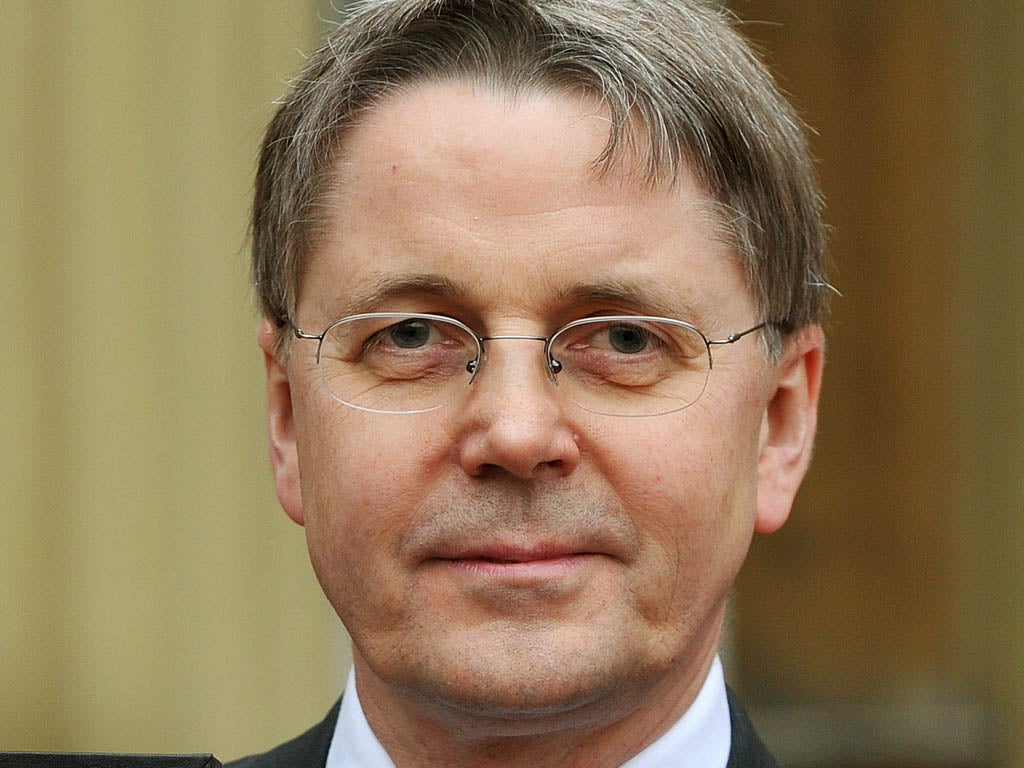Let’s see the top civil servants on television
Jeremy Heywood is now with his third successive PM. He and other officials should be held to account


Suddenly, a hint of light shines on the civil service, yet another revered public institution that has functioned largely in the dark.
The source of light has been the admittedly simplistic words of David Cameron’s former senior adviser, Steve Hilton, whose disparaging observations about civil servants to his new American students are now conveniently public.
But Hilton is by no means alone. Other ministers embark on ambitious and necessary reforms of the civil service, unable to disguise their despair. Even Cameron once made a speech on the need for sweeping change, but ironically was told to keep quiet on the issue by his then most senior official, Gus O’Donnell.
Lower down the current political hierarchy, politically appointed special advisers speak out in private, frustrated by their relatively marginal role in policy-making compared with the inert Whitehall machine. Soon after the election, the frustration was tangible within No 10, a centre of power where Jeremy Heywood , O’Donnell’s seemingly eternal successor, holds considerable sway.
A similar tension applied under the last Labour government. Special advisers sometimes attended meetings in Downing Street on Labour’s famous “grid” for the following week and listened with disbelief at the naivety of Heywood’s assessment of how events were likely to unfold. There was also a similar range of damning public quotes under the previous government, including most famously John Reid’s assertion that the Home Office was “not fit for purpose”.
Privately, the special advisers to both governments were sometimes even more scathing. Frustration is peculiarly intense in the current government because Cameron has given the civil service machine more formal power over policy-making in No 10 than New Labour, which sought, from the beginning, to assert its highly developed political will.
Some senior advisers currently in Whitehall are now delighted that the role of the civil service has moved into intense media focus. Indeed a few have played a part in ensuring that the media gaze has turned in this particular direction.
Labour’s advisers in government were equally contemptuous, suggesting to me that there was a poor work ethic in the civil service – one claimed that it was hard to get hold of some officials on a Friday – and despairing of the wasteful need to appoint consultants from outside, at great expense, to run government projects because the civil service machine could not be trusted to do so.
There are important qualifications to this all- party onslaught. Some current ministers and parts of the media detect a deliberate statist conspiracy from the civil service to block anti-state reforms. This is nonsense, similar to the laughable allegation that the BBC is left wing. Apart from a mountain of other factors, neither the civil service nor the BBC is managed well enough to organise an effective conspiracy on behalf of the left or the right.
More important, most officials I have met are there to serve, at least in theory. That is partly why they choose to work in the civil service, and have an interest in policy-making and public service beyond attachment to party. It is also the case that the current Government of the radical right is pursuing sweeping change on many fronts, inevitably testing the system, as Cameron acknowledged in a BBC interview yesterday. To some extent, the opposite applied under New Labour, with too many cabinet ministers awaiting their instructions from either Tony Blair or Gordon Brown, wary of acting, constantly reviewing, and then blaming the civil service that more was not being done. Unavoidably, governing is also more complicated than Steve Hilton would like to believe. Under a perfect civil service, he would still discover that not every moment of each day could be devoted to his treasured reforms alone, not least in a coalition in the midst of an economic crisis.
In Hilton’s case, the civil servant’s grip was greater because of what another senior Tory adviser, and Hilton admirer, described to me as the great irony they had discovered too belatedly. To give away power – the essence of Hilton’s project – it was necessary to have a very strong, highly political centre. Almost for ideological reasons, Cameron chose not to have one.
One solution to the current tensions is for Cameron to allow the appointment of many more special advisers. Political journalists tend to want to speak to special advisers to discover what is happening. Yet huge press offices are still staffed by civil servants in each department. More widely, when policy-making involves an important political dimension it seems wildly disproportionate for ministers to rely on two or three overworked special advisers while hundreds of civil servants are caught in a sclerotic bureaucracy. At the same time, senior officials, most of whom are in departments for much longer than fleeting ministers, must be held more fully to account, including on TV and radio. Jeremy Heywood is now with his third successive Prime Minister, a durability at the heart of government that is a form of mighty power in itself. Yet few voters know who he is. We should get to know the top officials. However erratically shone, it is very good news that light is being cast on Whitehall and other institutions that got too used to darkness.
s.richards@independent.co.uk Twitter: @steverichards14

Join our commenting forum
Join thought-provoking conversations, follow other Independent readers and see their replies